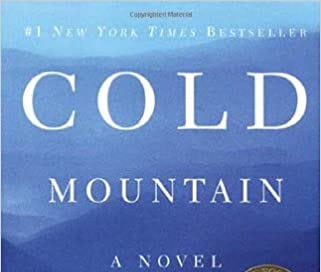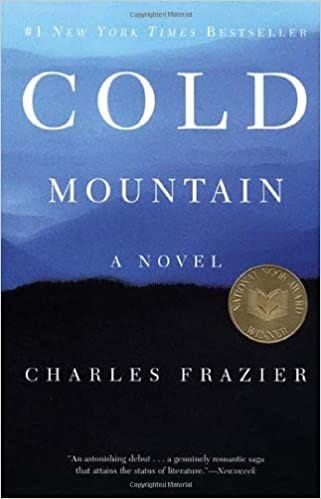Cold Mountain by Charles Frazier
Cold Mountain
Author: Charles Frazier
Genre: Historical Fiction
Date: 09 August 2021
Rating: 2.5 stars
Review: I just did not get along with the writing in this book. While I saw the merit in the story itself and the clever use of elements from the Odyssey, I could not read more than 10 pages without almost dozing off. But this was definitely a ‘me’ problem and not a Charles Frazier problem.
Cold Mountain is set during the Civil War and follows the story of Inman, a soldier who turns his back on the war after being injured and tries to make his way back to his home in Cold Mountain and the woman he loves. He is tormented by the things he was forced to see and do during the war and these memories haunt him as he undertakes the hard journey back home. On his way, he comes across several characters and his interactions with them is where the Odyssey-element comes into the story. Meanwhile, Ada (Inman’s Penelope) finds herself lost and destitute, with no idea about how to take care of the farm that has been left to her after her father’s death. Her friendship with Ruby helps her get back on her feet.
The book is told in alternating chapters by Inman and Ada. While Inman’s journey is more obvious, Ada, too, is on a journey of her own. She goes from being a sheltered, city girl with absolutely no knowledge of how to take care of herself or her farm to being someone who is well-versed with the tell-tale signs of nature. The contrasts between the characters of Ada and Ruby, one educated and proper and the other illiterate and ‘savage’ makes for interesting reading.
I didn’t have any qualms with the story itself. But Frazier’s writing is detailed. He veers off into descriptions of the landscape and the environment so often that I found my attention wandering off, too. I know a lot of people enjoy this kind of descriptive writing but in my case, it felt like the unnecessary descriptions took away from the story itself. Another pet peeve of mine is not using double inverted commas. It makes for much smoother reading when dialogues are clearly parcelled in between speech marks but Frazier starts the dialogue only with a hyphen. This made even skimming parts of the descriptive writing difficult because I kept missing important dialogues.
The characters in this book are not the most likeable and I generally don’t have a problem with that. But in this case, it was almost difficult to understand why they liked and loved in the case of Inman and Ada, each other.
All in all, I found some of the themes discussed in the book interesting but Frazier’s writing is not for me.



